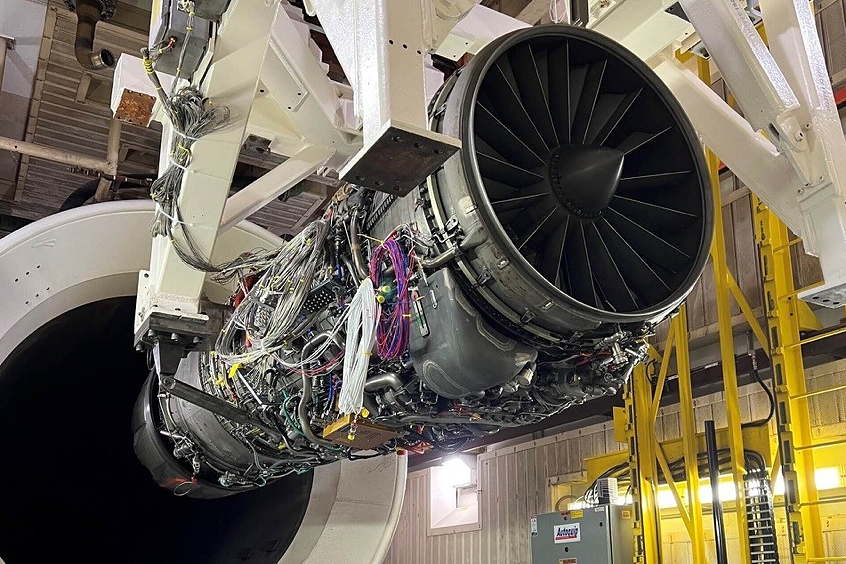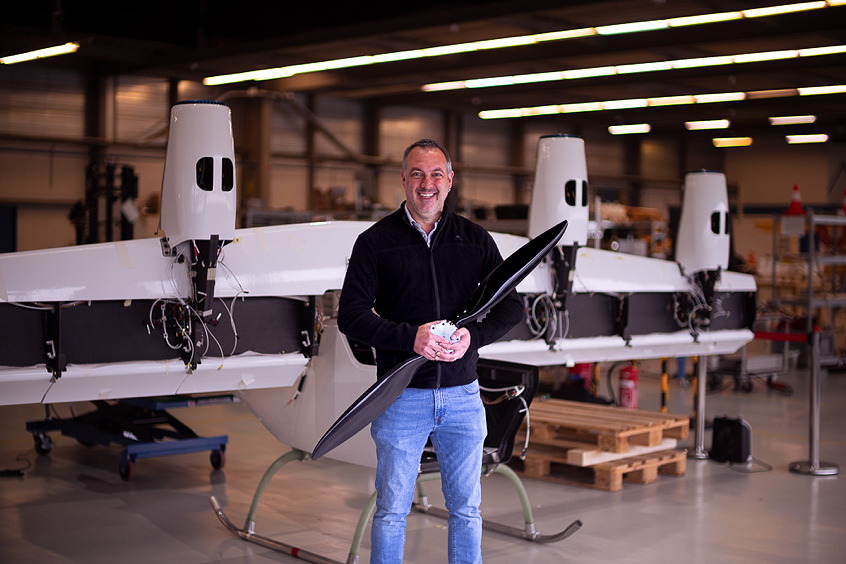MTU Aero Engines, Germany's leading engine manufacturer, and aerospace company MT Aerospace are jointly developing a complete liquid hydrogen fuel system for commercial aviation. The partners announced the project today at the Paris Air Show in Le Bourget. The first application will be MTU's Flying Fuel Cell™.
“For many years, we have been connected not just by a successful partnership, but also by a shared vision of zero-emission flight,” explains Barnaby Law, Chief Engineer Flying Fuel Cell for MTU. About three years ago, they began jointly developing the LH2 fuel system for commercial aviation applications. The system consists of tanks, sensors, heat exchangers, valves, safety and control systems. And the work is going very well, says Law – by the end of the year, the first system will be tested at MT Aerospace in Augsburg.
“At MT Aerospace we have decades of expertise with hydrogen in the aerospace sector, and now we want to apply it to commercial aviation as well,” says Markus Staudt, Vice President and Head of Business Development Export, Defence & Hydrogen. The experts at the aerospace company are responsible for the cryogenic hydrogen storage and supply system, additively manufactured heat exchangers, sensors and system integration. “This expertise comes both from sustainable technology innovations and from a large number of product-based cryogenic system tests,” explains Dr. Günther Schullerer, Director of Engineering at MT Aerospace.
The safety system, control system and valve technology are all part of MTU's work package, as well as the overall systems leadership. All of the work is done in close collaboration with the European Union Aviation Safety Agency (EASA) in order to fulfill the certification and safety-related requirements. Starting in 2035, the MTU fuel cell will be used on shorter routes in the shuttle and regional aviation sector. As its efficiency improves, it will then also fly short and medium-haul routes and further reduce the climate impact of commercial aviation. “With some minor modifications, the LH2 fuel system that is currently being developed for the FFC could also be used for direct hydrogen combustion in aircraft engines,” says Law.
| Contact details from our directory: | |
| MTU Aero Engines | Compressors, Engine Parts, Additive Manufacturing, Final Assembly, Turbine Engine Starters, Combustion Test Services, Turbine Engine Blades, Turbine Engine Vanes, Blisks, Fuel Cells |
| MT Aerospace AG | Composite Structures, Ceramic Composite Structures, Metal Structures, Fuel Tanks & Systems, Aircraft Structural Components, Waste Water Systems, Water Systems, Additive Manufacturing |
| Related directory sectors: |
| Engine Components |
| Electrical Power Systems |
Weekly news by email:
See the latest Bulletin, and sign up free‑of‑charge for future editions.

Amprius and Stafl team up for battery pack innovation

RISE engine efficiency project gains momentum

Dufour picks Mejzlik propeller blades for the Aero2
